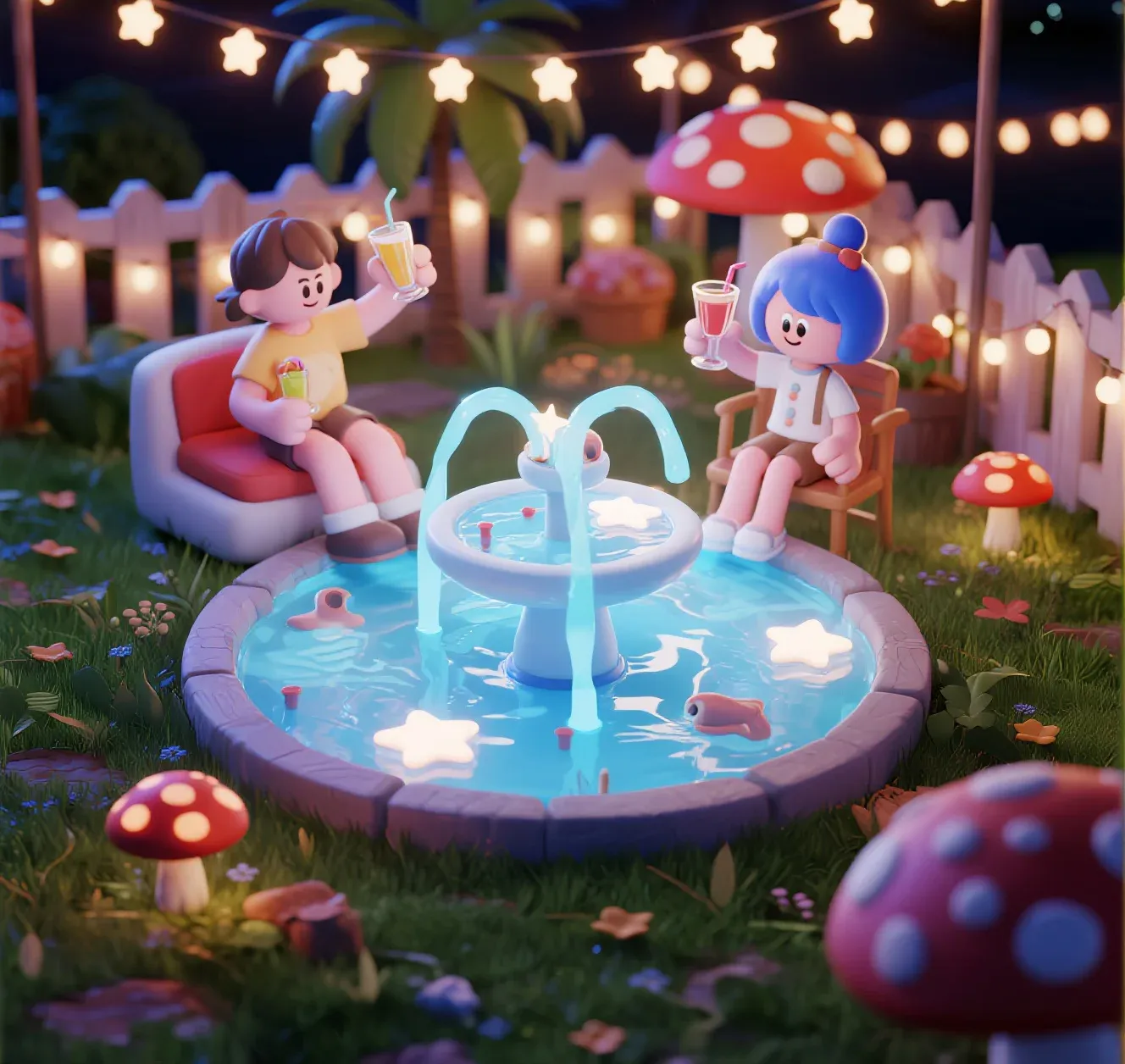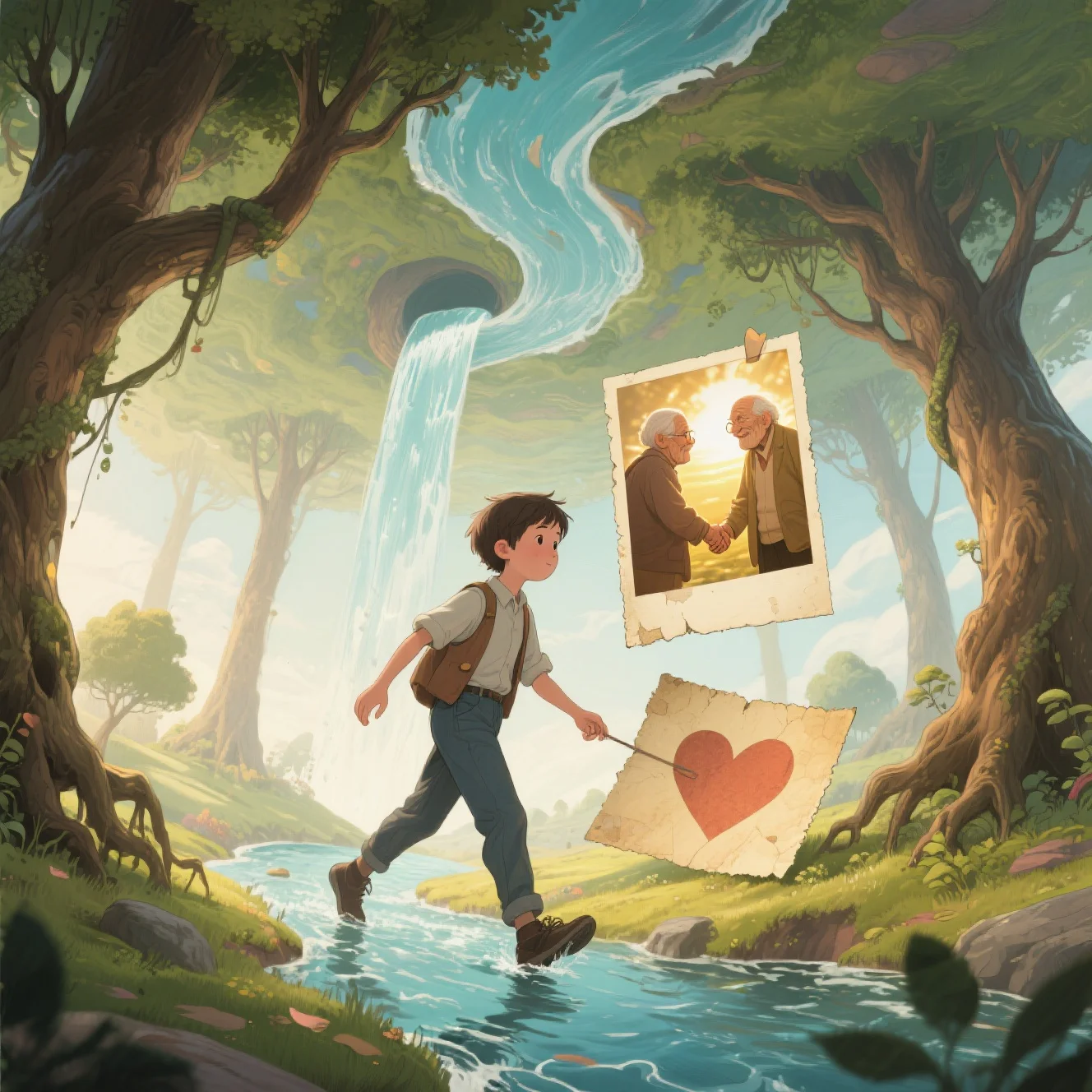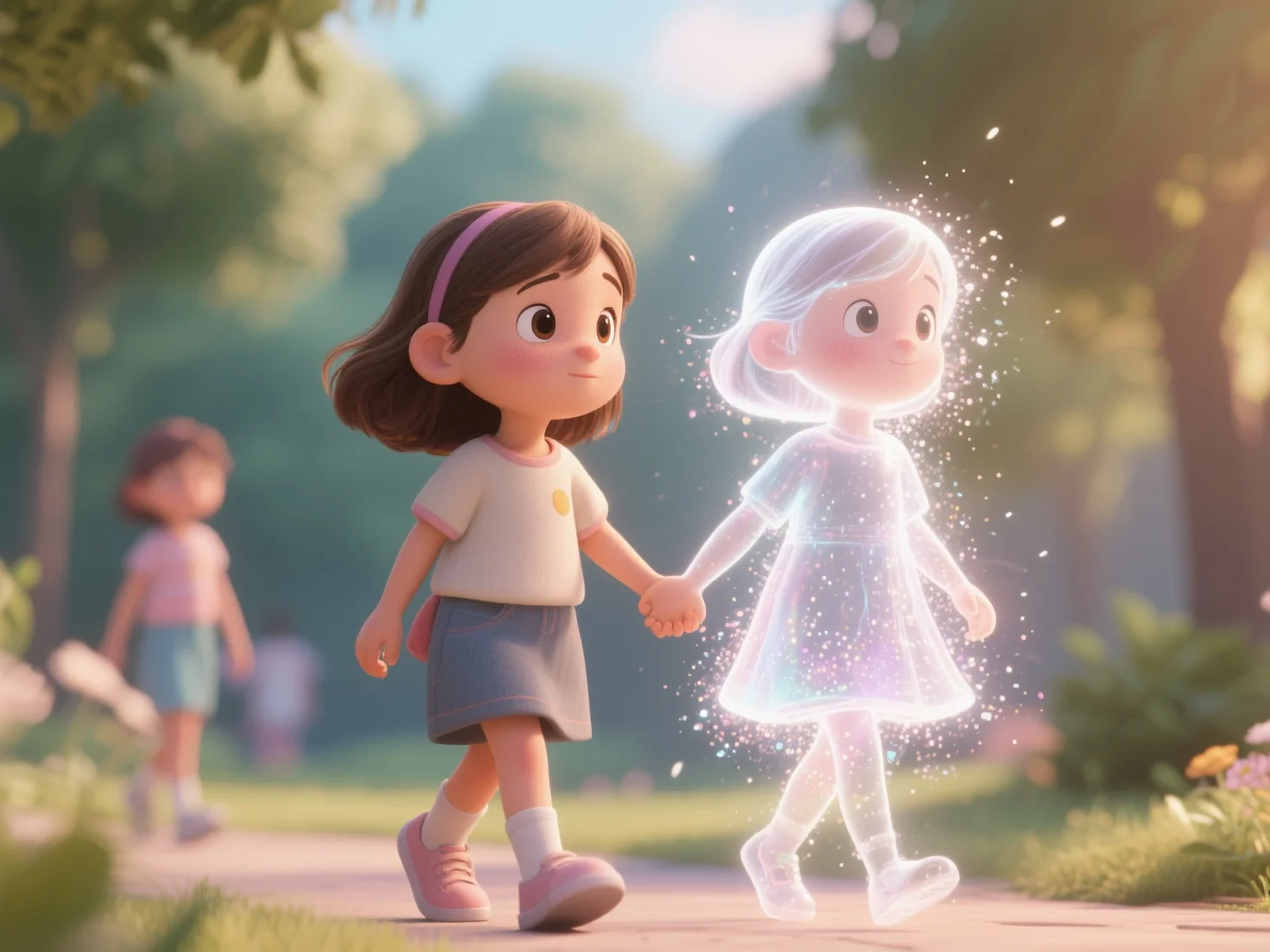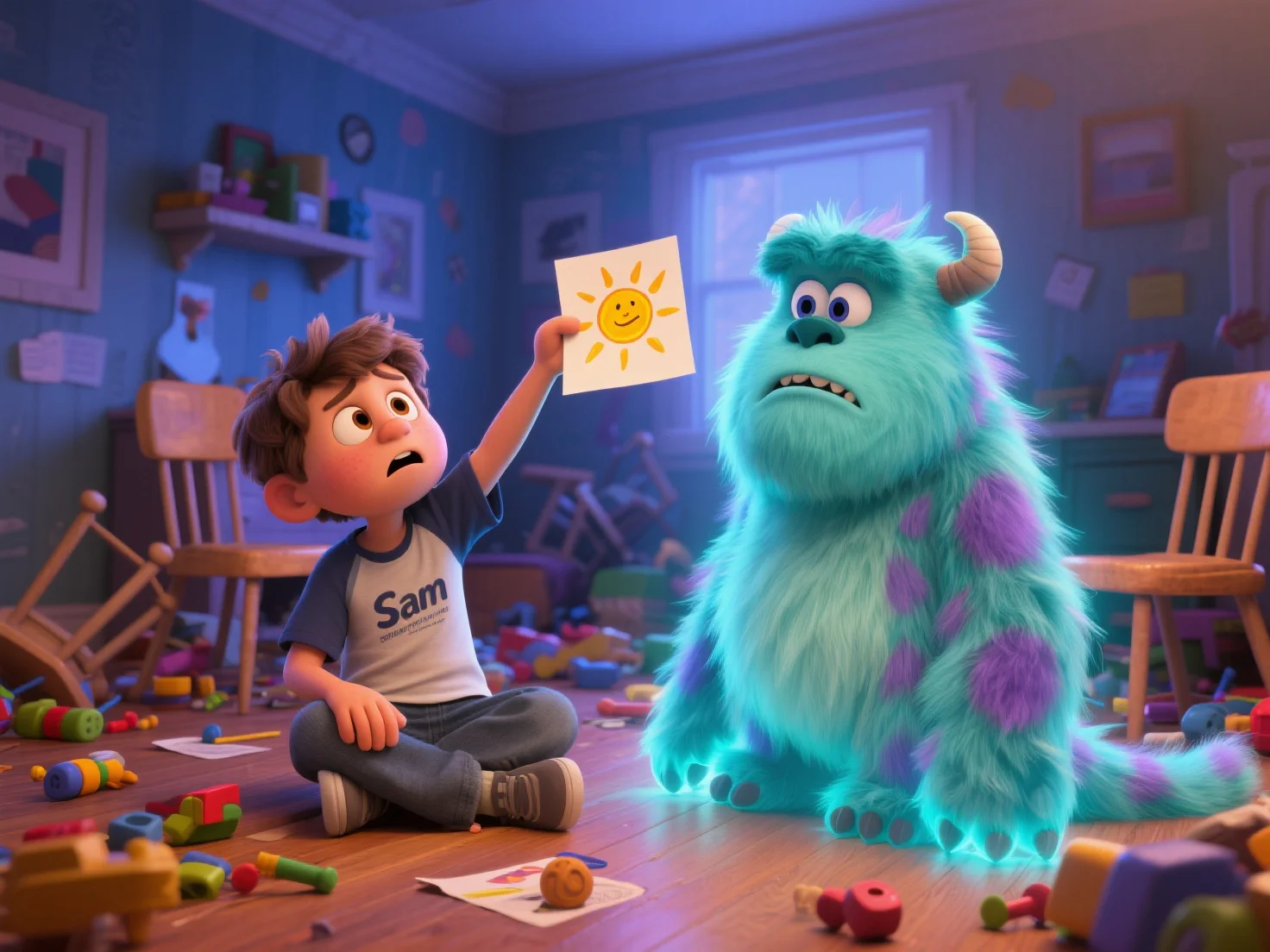The Brave Little Fish
Join Finn, a tiny fish who overcomes his fears to save his ocean home from pollution in this inspiring tale about courage, environmental protection, and believing in yourself.
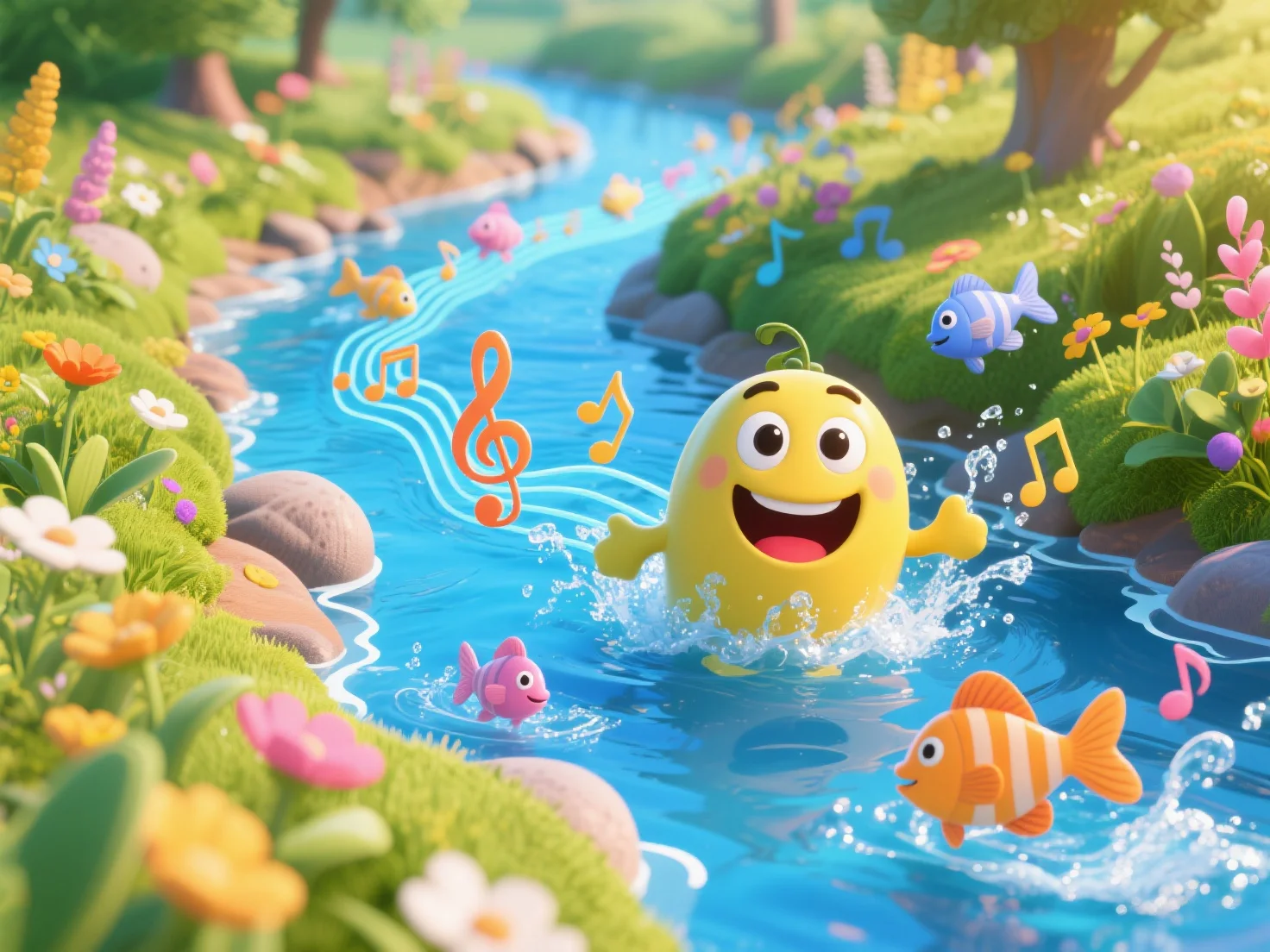
The Brave Little Fish
Deep beneath the sparkling waves of the Pacific Ocean, in a colorful coral reef that looked like an underwater rainbow, lived a tiny orange fish named Finn. While his name meant "brave warrior" in an ancient fish language, Finn felt anything but brave.
Finn was the smallest fish in his school, and he was afraid of almost everything—the dark caves where the older fish liked to explore, the strong currents that swept through the reef, the mysterious sounds that came from the deep ocean, and especially the enormous whale sharks that occasionally glided through their neighborhood like living submarines.
"I wish I could be brave like my big sister Coral," Finn would think as he watched her swim fearlessly through sea anemone forests and race alongside the sleek barracuda. "She's not afraid of anything."
Life in the Coral Reef
Finn's home was in Rainvow Reef, one of the most beautiful places in the entire ocean. The coral formations created a natural city where thousands of sea creatures lived together in harmony. Bright yellow tangs darted between purple sea fans, while spotted cleaner shrimp set up their stations to help remove parasites from larger fish. Green sea turtles glided gracefully overhead, and schools of silvery fish moved like flowing silk through the crystal-clear water.
Every morning, Finn would swim with his family to the feeding grounds where tiny plankton and algae provided breakfast for the smaller fish. His parents, who were both wise and gentle fish, always made sure Finn stayed close to the group.
"The ocean is wonderful, but it can also be dangerous," his mother would remind him. "Stay where we can see you, little one."
This advice suited Finn perfectly, since he had no desire to venture far from the safety of his family and the familiar coral formations he knew so well.
The Arrival of Trouble
One morning, Finn woke up to find something different about his beautiful reef. The water seemed cloudier than usual, and there was a strange smell—something artificial and unpleasant that made his gills feel scratchy.
As Finn swam with his school toward their usual feeding grounds, they encountered something that made everyone stop in horror. Floating through their reef were pieces of plastic—bottles, bags, and other human trash that bobbed along with the current like unwanted visitors.
Even worse, some of the coral formations that had been bright and colorful the day before now looked dull and lifeless. Several fish were swimming in confused circles, and Finn could see that some of the sea plants were covered in a strange, oily substance.
"What's happening to our home" Finn asked his sister Coral, who was staring at a plastic bottle that had gotten caught in her favorite sea anemone.
"I don't know," Coral replied, but for the first time in Finn's memory, his brave sister looked worried. "I've never seen anything like this before."
The Emergency Meeting
By midday, Elder Nautilus, the oldest and wisest creature in the reef, had called an emergency meeting of all the sea animals. Fish, crabs, sea turtles, dolphins, and even a few small octopi gathered around the ancient nautilus shell where Elder Nautilus lived.
"My friends," Elder Nautilus began, his voice carrying the weight of centuries of ocean wisdom, "our reef is in grave danger. The humans on the surface have had an accident—one of their large ships has spilled oil and dumped waste into our waters."
A murmur of fear and concern rippled through the assembled sea creatures.
"The pollution is spreading," Elder Nautilus continued. "If we don't act quickly, it will kill our coral, poison our food, and destroy the home we've all shared for generations."
"What can we do" called out Marina, a young dolphin. "We're just sea creatures. We can't stop human pollution."
"We can't clean up their mess ourselves," Elder Nautilus agreed, "but we can alert the humans who want to help us. There are marine biologists and ocean conservationists on the surface who work to protect places like our reef. If we can get their attention, they'll come to help."
"But how do we contact the humans" asked Coral. "None of us can survive on the surface long enough to communicate with them."
Elder Nautilus was quiet for a moment, then spoke slowly. "There is a way, but it's dangerous. Near the surface, where the pollution is thickest, there's a research station where human scientists study the ocean. If someone could swim up there and create enough disturbance—perhaps by gathering debris in a pattern the humans would notice—it might attract their attention."
"I'll go," Coral said immediately. "I'm a strong swimmer, and I'm not afraid of the surface."
But Elder Nautilus shook his head sadly. "I'm afraid this mission requires someone smaller, dear Coral. The space where the pollution is collecting is too narrow for larger fish to navigate safely. We need someone small enough to move through the debris without getting trapped, but brave enough to venture into dangerous waters."
All eyes turned to the smallest fish in the gathering—Finn.
Finn's Fear
Finn felt his scales tingle with terror. Everyone was looking at him expectantly, but the thought of swimming up to the dangerous, polluted surface waters filled him with panic.
"I... I can't," Finn stammered. "I'm too small, too scared. What if I get lost What if the pollution makes me sick What if there are sharks near the surface"
His mother swam over and gently touched his fin. "No one will force you to go, little one," she said softly. "This mission is dangerous, and you're right to be cautious."
But Coral looked at her little brother with understanding rather than disappointment. "Finn," she said, "being brave doesn't mean you're not scared. It means you do the right thing even when you are scared."
"But I'm not brave like you," Finn protested. "I'm afraid of everything—currents, caves, big fish, dark water. How could I possibly save our reef"
Elder Nautilus floated closer to Finn, his ancient eyes kind and wise. "Little fish," he said, "sometimes the smallest creatures have the biggest hearts. And sometimes, the very qualities that make us feel weak are actually our greatest strengths."
"I don't understand," Finn said.
"You're small, which means you can go places others cannot. You're cautious, which means you'll be careful and think before you act. You're afraid, which means you understand the real dangers and won't take foolish risks. These aren't weaknesses, Finn—they're exactly what this mission needs."
The Decision
That night, Finn couldn't sleep. He floated near his family's coral home, watching the strange debris drift by in the current. He could see that more coral was losing its color, and some of the smaller fish were already getting sick from the pollution.
He thought about all the creatures who called this reef home—the playful clownfish families, the wise old sea turtles, the busy cleaner shrimp, the graceful sea angels. This was their world, and it was dying.
As the night wore on, Finn made a decision that surprised even himself. When the first rays of sunlight filtered down through the water, he swam to where Elder Nautilus was resting.
"I'll do it," Finn said, his voice small but determined. "I'll try to get the humans' attention."
Elder Nautilus's eyes brightened. "Are you certain, little one You don't have to prove anything to anyone."
"I'm not doing it to prove anything," Finn replied. "I'm doing it because this is my home too, and everyone here is depending on someone to try. If I don't go, who will"
Preparing for the Mission
The entire reef community came together to help prepare Finn for his dangerous mission. Marina the dolphin taught him about surface currents and how to navigate near the top of the water. Old Samuel the sea turtle shared his knowledge about recognizing different types of pollution and avoiding the most toxic areas.
Coral gave Finn her most prized possession—a piece of bright blue sea glass that had fallen from a human ship years ago. "This will help the humans notice you," she said. "And it will remind you that I believe in you."
Finn's parents equipped him with the fastest-growing algae they could find, which would provide him with energy for the long swim to the surface. They also taught him special breathing techniques that would help him cope with the thinner water near the top.
"Remember," his mother said, "if the pollution gets too thick, or if you feel sick, turn back immediately. No mission is more important than your safety."
"And remember," his father added, "we're all proud of you for trying, no matter what happens."
The Journey to the Surface
Early the next morning, Finn began his ascent to the surface. The familiar coral formations of his home grew smaller and smaller below him as he swam upward through the gradually lightening water.
At first, the swim was easier than he had expected. The water was clear, and he could see dolphins playing in the distance and schools of fish going about their daily routines. But as he climbed higher, things began to change.
The water became cloudier, and Finn could smell the sharp, chemical scent of the pollution growing stronger. Pieces of plastic began appearing more frequently, floating like ghostly jellyfish through the water.
About halfway to the surface, Finn encountered his first real challenge. A strong current caught him and began pulling him away from his intended path. For a moment, panic seized him, and he almost turned back. But then he remembered Marina's advice about using currents instead of fighting them.
Finn angled his body and let the current carry him laterally until he found a weaker spot where he could break free and continue upward.
The Polluted Waters
As Finn approached the surface waters, the scene became increasingly disturbing. The beautiful blue of the deep ocean gave way to a murky brown-green color. Plastic bottles, food containers, fishing nets, and other debris created an underwater garbage dump that stretched as far as Finn could see.

The smell was overwhelming, and Finn felt his gills burning from the chemicals in the water. Several times he had to stop and rest behind pieces of debris to catch his breath.
But worst of all was seeing the other sea creatures who were trapped or affected by the pollution. Finn saw a young sea turtle with a plastic bag wrapped around its flipper, struggling to swim. He saw fish swimming in confused circles, their sense of direction disrupted by the toxic water. He even saw a small whale calf separated from its mother, calling out in distress.
Each sight made Finn more determined to complete his mission, even as his fear and discomfort grew.
Finding the Research Station
Finally, after what felt like hours of swimming through the polluted water, Finn spotted something that made his heart leap with hope—a large floating platform with humans on it. This had to be the research station Elder Nautilus had described.
The humans appeared to be scientists, wearing protective suits and using various instruments to measure the water quality. Finn could see that they were already aware of the pollution, but they seemed to be focused on the areas closest to their station.
What they didn't realize was that the pollution had spread much farther and deeper than they knew—all the way down to Rainvow Reef.
Finn knew he had to find a way to make the humans understand that the damage wasn't just on the surface, but was threatening the entire underwater ecosystem below.
Creating the Signal
Remembering Elder Nautilus's advice about creating a pattern that humans would notice, Finn began gathering pieces of debris. Working carefully but quickly—he knew he couldn't stay in the polluted surface water much longer—Finn started arranging plastic bottles and other floating trash in a specific pattern.
Using his small size to his advantage, Finn swam through narrow spaces between debris, pushing and pulling pieces into position. He created a large arrow pointing downward toward the reef, surrounded by a circle of bottles and containers.
It was exhausting work, and several times Finn had to dodge larger pieces of debris that the current was pushing around. Once, a plastic bag nearly wrapped around him like it had the sea turtle he'd seen earlier, but he managed to wriggle free.
As he worked, Finn kept thinking about his family, his sister Coral, and all the creatures depending on him back at the reef. Every time he felt like giving up, he remembered their faces and found the strength to keep going.
Getting the Humans' Attention
Just as Finn was putting the finishing touches on his debris pattern, he heard voices from the research platform. The humans had noticed something unusual in the water nearby.
"Dr. Martinez, look at this," one of the scientists called to another. "This debris pattern—it's too organized to be natural."
"You're right," replied the scientist called Dr. Martinez. "It almost looks like it was arranged deliberately. But by whom"
Finn realized he needed to do something more to get their attention. Taking a deep breath (or the fish equivalent), he grabbed Coral's piece of blue sea glass and began swimming in rapid circles around his debris pattern, making the glass catch and reflect the sunlight.
"There!" shouted one of the humans. "There's something in the water—a fish, I think. It's swimming in a very unusual pattern."
The humans leaned over the edge of their platform, pointing and talking excitedly. Finn continued his attention-getting swimming display, even though the effort was exhausting and the polluted water was making him feel very sick.
The Rescue Begins
Dr. Martinez seemed to understand what Finn was trying to communicate. "It's almost like this fish is trying to tell us something," she said. "The debris pattern is pointing downward. Maybe the pollution has spread deeper than our initial surveys indicated."
Another scientist nodded. "We should send down the underwater drone to check the deeper levels. If this little fish swam all the way up from the bottom, there might be serious damage to the benthic ecosystem."
Finn watched as the humans began mobilizing their equipment. They lowered cameras and sensors into the water, following the direction his arrow pattern indicated. Soon, their instruments would discover Rainvow Reef and the extent of the pollution damage.
But Finn was running out of strength. The toxic water had made him feel weak and dizzy, and he knew he needed to get back to cleaner water quickly.
The Dangerous Return Journey
The swim back down to the reef was even more challenging than the ascent had been. Finn was tired, sick from the pollution exposure, and struggling to navigate through the debris field.
About halfway down, Finn's strength began to fail completely. The world started spinning around him, and he felt himself beginning to sink rather than swim. For a terrifying moment, he thought he might not make it home.
But then, just when things seemed hopeless, Finn heard a familiar sound—the clicking call of Marina the dolphin. She had swum up to find him, along with Coral and several other fish from the reef.
"We were worried about you," Coral said as she and Marina helped support Finn between them. "You've been gone for hours."
"Did... did it work" Finn asked weakly. "Did the humans understand"
"Look behind you," Marina said with a smile.
Finn turned his head and saw something wonderful—human diving equipment and underwater vehicles descending toward their reef. Dr. Martinez and her team were coming to assess and clean up the pollution damage.
The Cleanup Effort
Over the next several days, Finn watched from the safety of the deeper reef as the human scientists worked to clean up the pollution. They used special equipment to remove oil from the water, collected plastic debris, and treated the affected coral with medicines that would help it recover.
Dr. Martinez and her team also set up monitoring stations throughout the reef to watch for future pollution and to track the recovery of the ecosystem.
"You did it, little brother," Coral said as they watched the humans working. "You saved our reef."
"We all did it," Finn replied. "I couldn't have succeeded without everyone's help and advice."
Elder Nautilus swam over to where Finn was resting and recovering from his ordeal. "You showed extraordinary courage, young Finn," the ancient nautilus said. "But more than that, you showed that heroism comes in many forms. You didn't defeat a sea monster or conquer a great enemy—you simply cared enough about your community to do what needed to be done, despite your fear."
The Recovery
As the weeks passed, Rainvow Reef began to return to its former beauty. The coral regained its bright colors, the water cleared, and the fish population recovered from the effects of the pollution.
But something else had changed too—Finn was different. He was still small, and he was still cautious, but he was no longer paralyzed by fear. He had learned that being brave didn't mean being unafraid; it meant acting with courage when something important was at stake.
Finn began exploring parts of the reef he had never dared to visit before. He made friends with creatures he had previously been too shy to approach. He even started helping Elder Nautilus teach younger fish about ocean conservation and the importance of protecting their environment.
"You know," Coral said to him one day as they swam together through a forest of swaying kelp, "I always thought courage meant not being afraid of anything. But watching you taught me that real courage is being afraid and doing the right thing anyway."
The Legacy
Dr. Martinez and her research team returned regularly to check on the reef's recovery. They also worked to prevent future pollution by educating people about the importance of ocean conservation and proper waste disposal.
The story of the little fish who had alerted them to the pollution spread through the scientific community, and soon Rainvow Reef became a model for human-marine life cooperation in environmental protection.
Finn never knew that he had become famous among marine biologists as "the fish who saved a reef," but he wouldn't have cared anyway. What mattered to him was that his home was safe, his family was healthy, and he had discovered that even the smallest creature could make a big difference when they cared enough to try.
The Lesson Learned
Years later, when Finn had grown into a respected elder fish himself, young fish would often ask him about the day he saved the reef.
"How did you find the courage to swim all the way to the surface" they would ask.
Finn would always give the same answer: "I didn't find courage—I discovered it was there all along. Courage isn't about not being afraid. It's about caring more about something else than you care about your own fear. When I realized that my home and my family needed help, my love for them became stronger than my fear of the surface."
"But what if we're too small to make a difference" the young fish would ask.
"Some of the most important changes in the world," Finn would reply, "start with the smallest actions taken by those who care enough to try. Size doesn't determine the size of your impact—heart does."
And in the crystal-clear waters of Rainvow Reef, surrounded by thriving coral and healthy sea life, Finn's words carried the weight of truth earned through experience and courage proven through action.
The End
Remember: True courage isn't about being unafraid—it's about caring enough to act despite your fears. No matter how small you are or how big the challenge seems, you have the power to make a positive difference in the world when you act with love and determination.
Recommended Stories
Discover more amazing stories and continue your reading journey ✨
